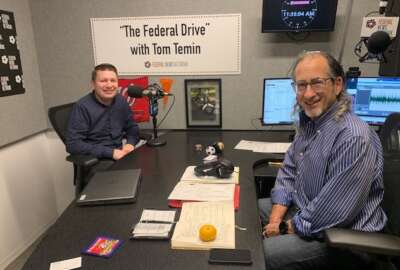The MSPB only looks like it’s gone dark
The Board says the pause in the posting of appeals decisions should end next week.
When federal employment situations go wrong, they can really go wrong.
For example, last summer the Merit Systems Protection Board reinstated the employment of a Defense Department engineer, and ordered DoD to pay her 10 years in back pay plus interest.
Briefly, the engineer, because of health problems, took an extended absence and provided written justifications. She was ordered to return, request accommodation, or resign. Her request for accommodation included a new supervisor. Whistleblower allegations of reprisal dropped into the increasingly toxic brew. Ultimately the two members of the Board in place — Cathy Harris and Raymond Limon — overruled the MSPB administrative judge.
It happens. That’s why there’s an appeals opportunity in cases of prohibited personnel practices. The appeal process exists in law. It was part of the last big reform of civil service that occurred during the Carter administration. If you feel you’ve experienced a prohibited personnel practice, and don’t like what the administrative judge decided, you can appeal to the Board itself. The Board is consequential, especially when you’re the agency shelling out more than a million dollars, to say nothing of the hours spent litigating over one employee.
I mentioned the two members, because once again there is a vacancy, after board member Tristan Leavitt, whose term was up, left last February. Two members constitute a quorum, so the board is good for now. Limon’s term runs ’til March 2025 and Harris’s to March 2028, without invoking the extention option.
Recall that the Board had no members or only one member for an astounding five years, until March 1, 2022.
To its credit, the Biden administration nominated Henry Kerner to that third slot on the MSPB. Kerner left the Office of Special Counsel when a one-year extension of his term there ended October 22nd. The White House nominated Assistant Attorney General Hampton Dellenger to succeed Kerner. The question is when the Senate, whose members pledge allegience to good government, will move on these nominations.
As we’ve reported, that five-year lack of quorum resulted in a stack of appeals backlogs reaching into the thousands. Imagine your appeal disappearing into limbo for half a decade. The Board members, once the quorum formed, started immediately to dig in. Members decided 2,027 cases since restoration of the quorum and reduced by half what the MSPB calls the “inherited backlog”
I review all of this because careful watchers of the MSPB have noticed a cessation in the outflow of appeals decisions. Its public affairs spokesperson Bill Spencer confirmed this, and says the decision releases will resume next week. He said Harris and Limon continue to decide cases, but some fixes to the MSPB’s new electronic appeal system have to be worked out before it can post the decisions. Spencer said the pause was announced back in August.
A sort of blackout period in which to file appeals commenced September 8th while the MSPB switched over to the scheduled October 2 rollout of e-Appeal.
The actual launch took place October 16, and staff have been tweaking the system ever since. Spencer says e-Appeal now contains 3,000 accounts, with users having submitted 400 filings so far.
So, almost like the Thrift Savings Plan board, the MSPB has had glitches launching a new portal. The universe of people who need to deal with the MSPB is just a tiny fraction of those who deal with the TSP, the latter of which covers basically every federal employee. The travails of the MSPB have consequently gotten less attention.
For aggrieved federal employees, the MSPB provides a two-level court. Like other justice and adjucatory systems, cases can carry on for years and run up big legal bills. But it’s the apparatus we have, and it can right real wrongs. Just ask the DoD engineer who got her job back a decade after losing it.
Nearly Useless Factoid
Two Chief Justices have appeared on U.S. currency. John Marshall was on the $500 bill, while Salmon P. Chase was on the $10,000 bill.
Source: The National Constitution Center
Copyright © 2025 Federal News Network. All rights reserved. This website is not intended for users located within the European Economic Area.
Tom Temin is host of the Federal Drive and has been providing insight on federal technology and management issues for more than 30 years.
Follow @tteminWFED






